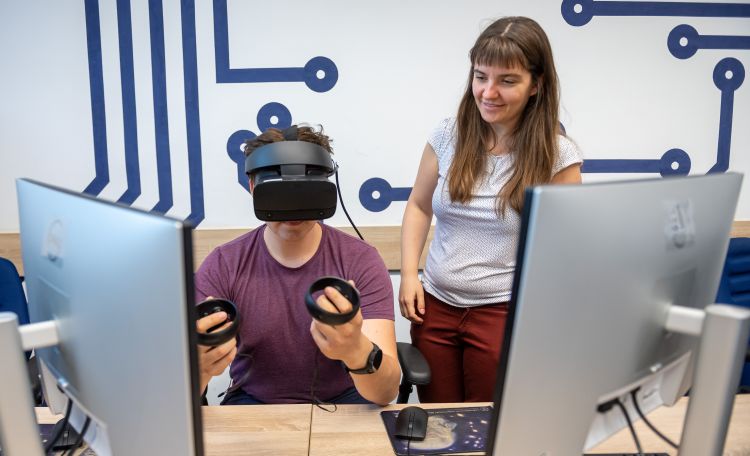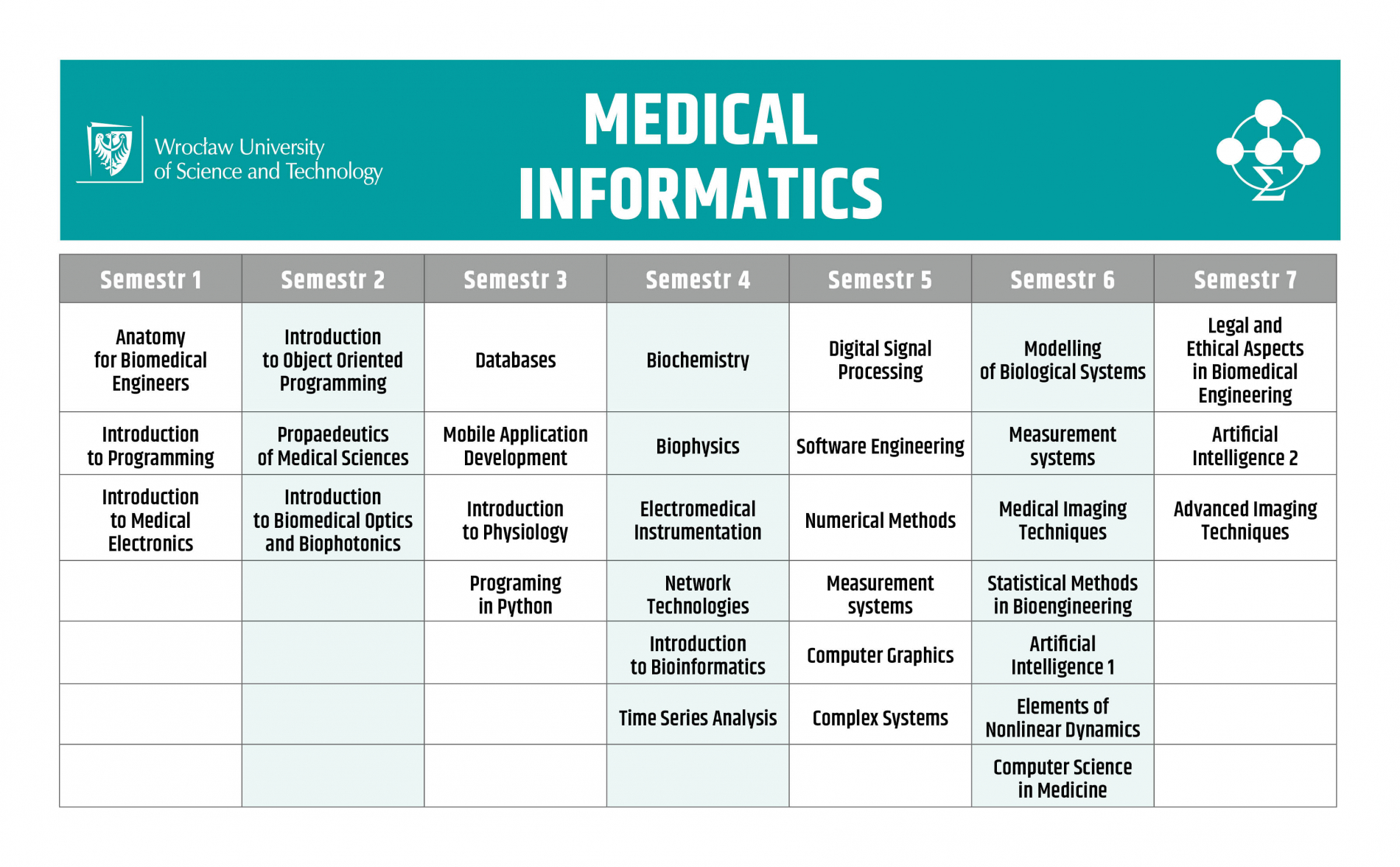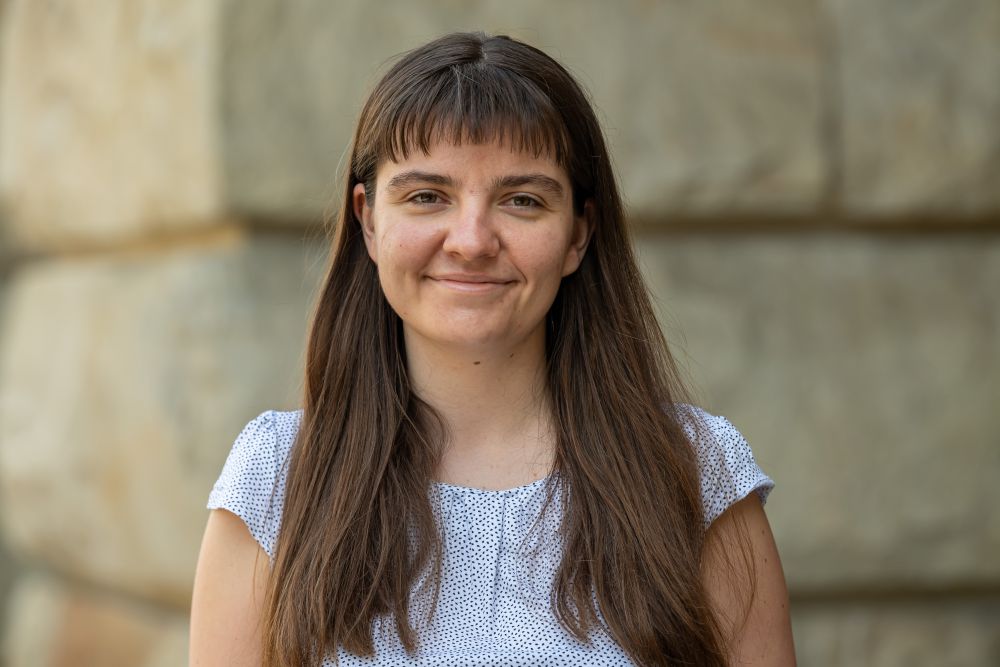YOUR BROWSER IS OUT-OF-DATE.
We have detected that you are using an outdated browser. Our service may not work properly for you. We recommend upgrading or switching to another browser.
Date: 27.05.2022 Category: admission, general news, science/research/innovation, studies

The Faculty of Fundamental Problems of Technology will soon see a new specialisation, until now available only in Polish. Medical Informatics is a response to the rapid development of information technology in the broadly understood field of medicine.
The specialisation was created for ambitious and enterprising students who are interested in modern technologies but also want to change and support the health care system.
 – According to a recently published report by Grand View Research, the global e-Health market will be worth nearly 900 billion USD by 2030. So, this is an area where experts are badly needed – says Mirosław Łątka, PhD, Dsc, Professor of the University, coordinator of the Medical Informatics specialisation in the biomedical engineering programme.
– According to a recently published report by Grand View Research, the global e-Health market will be worth nearly 900 billion USD by 2030. So, this is an area where experts are badly needed – says Mirosław Łątka, PhD, Dsc, Professor of the University, coordinator of the Medical Informatics specialisation in the biomedical engineering programme.
– Our graduates will find employment in international markets: at medical entities, IT and medical equipment companies, as well as biomedical start-ups. We want to educate future engineers with a good understanding of healthcare – he adds.
At the Faculty of Fundamental Problems of Technology (W11), the medical informatics specialisation in Polish has been running since 2015, and now it will only be delivered in English.
– We’ve modified the curriculum and allocated more hours to IT subjects – explains Klaudia Kozlowska, PhD, Eng from W11, who was responsible for developing the timetable.
The people behind the specialisation focus on interdisciplinarity. They will teach students the basic sciences (mathematics, physics, biology, and chemistry) and information technology, as well as subjects such as medical apparatus, anatomy, and physiology. The study curriculum covers the IT fields that have been the most relevant in recent years, i.e. databases, mobile systems, or data science.
– All classes in this specialisation will be conducted in English, which is the language of modern science and technology – emphasises Prof. Łątka.

Medical Informatics course timetable
 Students will have the opportunity to participate in projects concerned with topics such as the application of artificial intelligence and bioinformatics.
Students will have the opportunity to participate in projects concerned with topics such as the application of artificial intelligence and bioinformatics.
– During my doctoral studies, together with medical informatics students, I had the opportunity to participate in a virtual reality (VR) simulator prototype project for planning and simulation training of microvascular brain surgery. We conducted the research together with neurosurgeons from a hospital in Opole – says Klaudia Kozłowska, PhD, a graduate of biomedical engineering and currently an assistant professor at the Department of Biomedical Engineering.
The scientist adds that other projects looked at using mobile devices to assess the health of elderly people and those with neurodegenerative diseases (such as Parkinson's disease).
The engineering curriculum comprises seven semesters of study. The classes will be taught by staff from the Department of Biomedical Engineering at W11 as well as practitioners working in the field of IT and at medical companies.
The new specialisation will become part of the University’s offering in the new academic year 2022/23. Enrolments for the biomedical engineering programme started on May 16 and will continue until July 7. There will be 40 places available for Polish and foreign candidates interested in studying Medical Informatics.
For more information, please visit the website rekrutacja.pwr.edu.pl.
Our site uses cookies. By continuing to browse the site you agree to our use of cookies in accordance with current browser settings. You can change at any time.